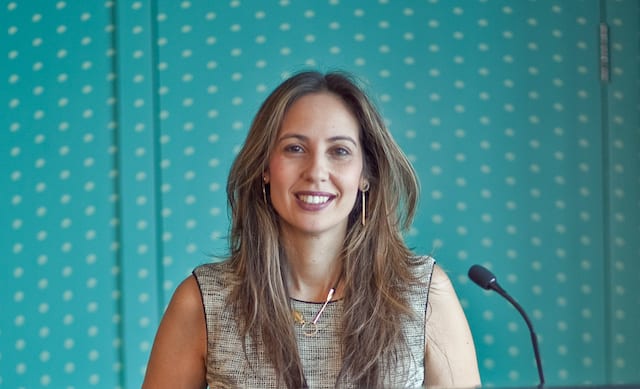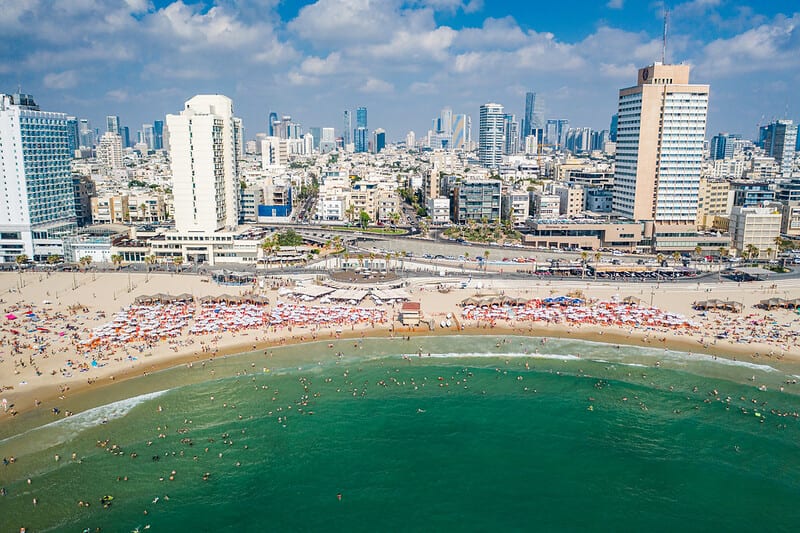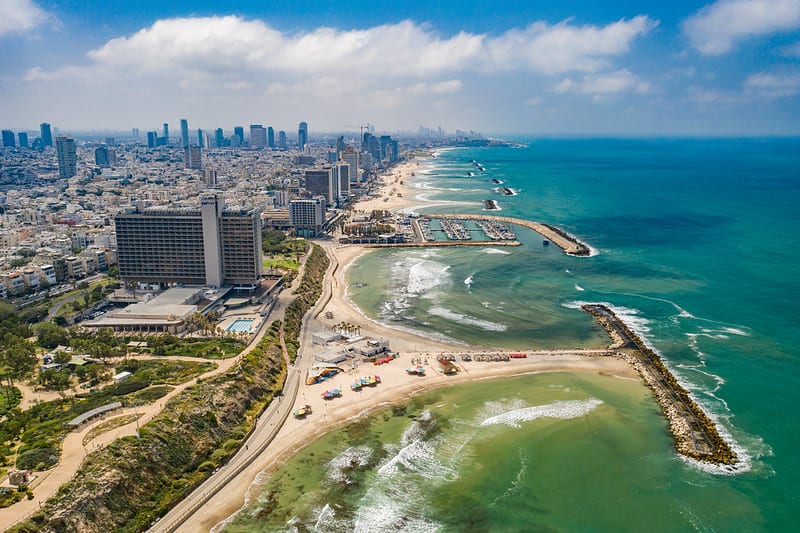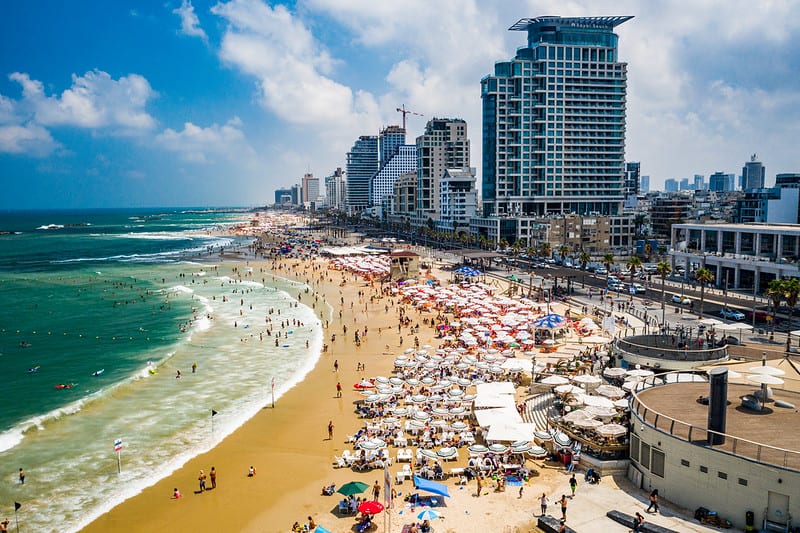Monaco Life interviews Rinat Guy, speaker at this month’s Transition Forum, about Tel Aviv’s similarities with Monaco and her role in helping to position the city as one of the leading urban destinations in the world by 2030.
As Chief Innovation Officer of the Tel Aviv-Yafo Municipality, Rinat Guy directs a strategic task force in charge of positioning the city as Israel’s international Innovation City.
Ms. Guy’s guiding vision is to foster an inclusive spirit of innovation, where all members of the entire urban ecosystem engage in collaborative initiatives that can be potentially implemented and scaled with the aim to address city challenges and improve the quality of life and the human urban fabric.
Monaco is in the process of becoming a Smart City. Do you see any similarities between Monaco and Tel Aviv?
People, processes and technology are the three elements which impact the success of smart city initiatives. Cities must recognise the needs of their residents, understand what drives the city’s economy, and create policies and targets which meet the needs of its residents, business owners and visitors.
Tel Aviv’s smart city initiatives are all facilitated by free citywide Wi-Fi in public areas and serve to improve municipal services, enhance residents’ quality of life and create the conditions for sustainable urban development. Above all they exemplify the city’s active, intelligent role in employing technology to heighten civic engagement and ensure a city which is accessible and responsive to all.
Tel Aviv and Monaco are both committed to the C40 Cities Climate Leadership Group affirming the commitment to tackle climate change now in order to ensure a clean and more sustainable future. Both cities also have a warm and sunny climate and are welcoming in the sense that residents spend most of their time outdoors, in cafes, meeting people and networking – creating excellent conditions for a thriving start-up ecosystem.
What start-ups does the municipality prefer to support and why?
In recent years, TLV has also emerged as one of the world’s leaders in technology and innovation. There are 2,000 start-up companies at any given moment in Tel Aviv, which means it has the highest density of start-ups in the world, per capita or per square mile. Many start-ups cannot gain government support; they are not mature or big enough. The bureaucracy to gain funding is too complicated, time consuming and too expensive for a seed start-up. The Municipality of Tel Aviv has a significant role in supporting those start-ups and more specifically start-ups dealing in clean tech and quality of life related initiatives. Every two weeks, representative of the municipality meet start-ups to understand their needs and help them where possible, from providing them with access to municipal co-working spaces, access to municipal data, access to municipal experts, and of course, aid with tax benefits.
How important is it to recruit foreign entrepreneurs?
Over the past decade, our city has been experiencing a unique phenomenon: from a local economic hub, serving mainly the Israeli market, Tel Aviv has become an international hub, attracting talent and companies from all over the world with a clear focus on the creative and technology industries.
If we want to maintain our position in the start-up world the key is to also cooperate with others, bringing different cultures to the brainstorm. We help foreign entrepreneurs to find their way to integrate, to get their visa, and vice versa.
Can you tell us more about ‘Silicon Wadi’?
Tel Aviv is known as the ‘Silicon Wadi’ for a good reason. It is a relatively small city, located in the Middle East, which makes a substantial impact on the global start-up ecosystem. Tel Aviv became a global hub regardless of a complicated geopolitical situation in the area. The impact its high-quality ecosystem has on the economy is well noted. The high-tech sector is the country’s number one export industry and it contributes by generating tax revenue both from its success stories: the Exits, and the high salaries to its employees.
Tel Aviv has been ranked the world’s second ‘most innovative city’ as part of the Wall Street Journal magazine and Citibank’s City of the Year contest. What did this mean for the city?
Tel Aviv-Yafo today is a city characterised by inviting and welcoming public spaces, personal security, a thriving cultural and arts scene, public institutions – such as schools, kindergartens, community centres, cultural institutions, welfare institutions, religious institutions and more – at the highest standard. Nature has given us a flat, small, almost rainless city – which makes wandering around it wonderful. We did everything else with hard work: we built up Rothschild Boulevard, which runs through the city, as a main business artery; we have invested huge sums in upgrading the beach, parks, streets and squares; we have put a lot of effort into a policy of encouraging nightlife and no less important – in the personal safety of residents; we invest heavily in cultural institutions and in artists themselves. And the result is that Tel Aviv-Yafo is a very fun city for young people today, and where the young people are, is where the businesses are. The most important element of the story, the secret ingredient, is the spirit of the city and its values, and this is what brings those accolades and awards.
Your team seems to place a lot of emphasis on listening to the people in the community, through initiatives such as ‘I have an idea’. Why is this important?
Tel Aviv made a strategic decision to empower the process of innovation, expand it, and create municipal platforms to engage with as many people as possible. It is the concept of “harnessing the potential of the entire ecosystem”, in other words: social innovation. Not only do we improve the city and the quality of life for residents, but we foster the spirit of cooperation as a community by empowering the human fabric. This in turn will result in a cohesive, resilient community.
I believe we must harness the entire ecosystem – private to public sector, as well as engage with municipal employees and the community. There is great gain in doing so.
Why are you passionate about urban innovation?
Through urban innovation I believe it is our duty as public servants to harness idea contributions and input from all the stakeholders in the urban ecosystem to care, preserve, develop our cities and provide the highest quality of life for the taxpayer. By doing so we instil the merits of accountability, cooperation, engagement, belonging, influence, equal opportunities, inclusion and social responsibility, with one central goal in mind: to build a more cohesive and resilient society.
I get my personal fulfilment by providing the platform and empowering the people to take an active part in this process. The ultimate satisfaction and drive for me is when I see a project born from the people and successfully implemented by the people, and the feedback and feelings of value I receive from the people. This is exactly the hope and culture change that motivates me to believe in urban innovation
Can you tell use more about Hackatons?
The Municipality hosts a variety of hackathons, both for municipal employees and for entrepreneurs from Tel Aviv and around the world. The main goal is to find and implement solutions for urban challenges that the city faces. For example, our most recent hackathon addressed coronavirus-related challenges faced by cities around the world. Participants had to suggest ideas and develop technological solutions for social and logistical problems such as, “how can the chances for business to overcome the crisis be evaluated?” and, “how can cities assist vulnerable populations during this crisis?”, and lastly, “how can public order and cleanliness be maintained while reducing the spread of the virus?”.
I see Tel Aviv’s aim is to position itself as one of the world’s 20 leading global cities. Why is this important and how close is the city to achieving that goal?
Tel Aviv Global & Tourism is a municipal company that reports to the Mayor’s Office at the Tel Aviv-Yafo Municipality and was established exactly for that goal. It facilitates the global quantum leap taken by the city of Tel Aviv-Yafo in creating economic and tourism growth. The focus of the company is on tourism, economic development and international communications, which involve collaborations with numerous departments at City Hall, including the Media and Marketing Administration, International Relations and others. In light of the vision of the Mayor of Tel Aviv-Yafo, Mr. Ron Huldai, the company manages municipal-national initiatives designed to position the city as a hub of innovation and entrepreneurship, a global brand and a leading tourist destination. It also develops and encourages marketing projects that generate interest and curiosity about the values and outputs of Tel Aviv-Yafo and the people living in the city.
Tel Aviv’s vision is to be one of the leading urban destinations in the world by 2030. In the past decade, Tel Aviv-Yafo has taken a significant quantum leap as a tourist destination and has enhanced its standing as a global city that draws millions of tourists and visitors every year. In the coming decade, tourism management in the city will aim to achieve the vision while relying on three key growth drivers.
From 28th May to 25th June, Transition Forum is livestreaming interactive discussions with innovators, business leaders, policymakers and investors on scaling up climate action. Monaco Life readers will receive 15% OFF tickets with the code TF20-Monaco. For more information, visit the website at transition-forum.org
Top photo credit: Noa Guttmann
Interview: Tel Aviv-Yafo Municipality CIO Rinat Guy



